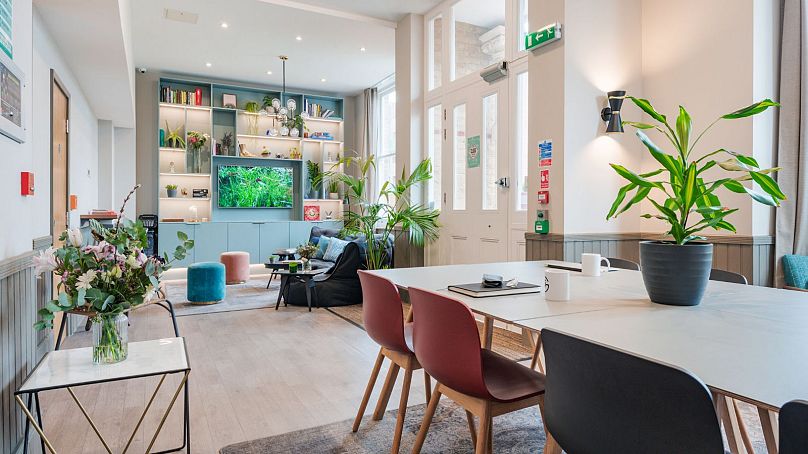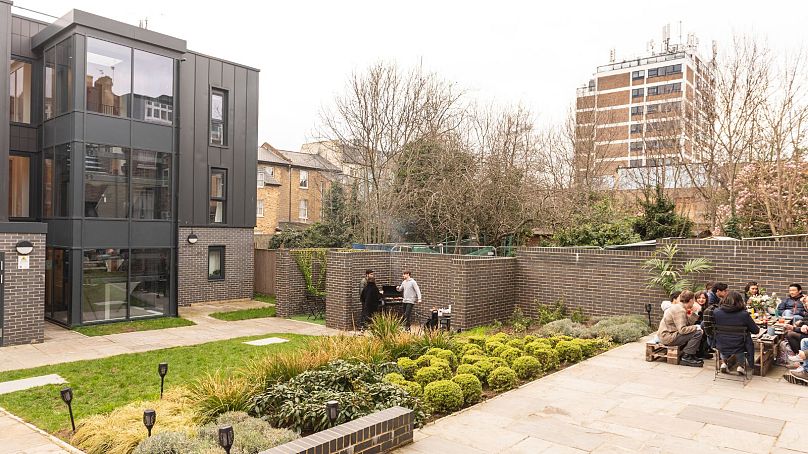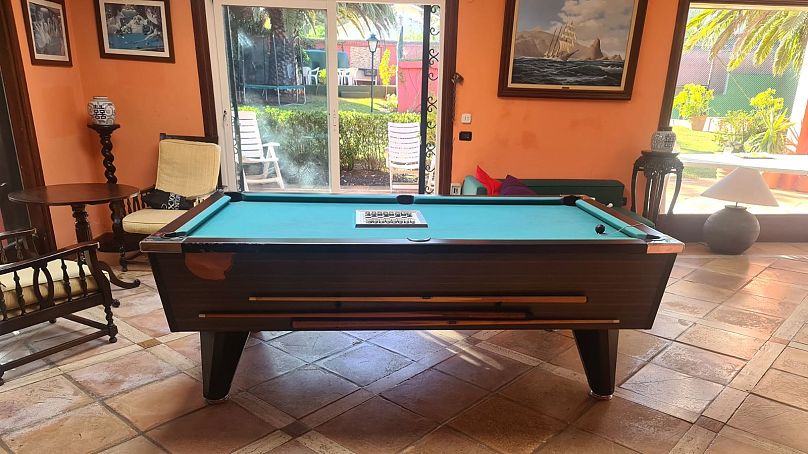With the rise of remote working and digital nomads, the concept of "co-living" is also taking off - but what exactly is it?
“It felt a little bit daunting – the last time I shared was when I was at university, and I thought, do I really want to share?”
 ADVERTISEMENT
ADVERTISEMENT
 ADVERTISEMENT
ADVERTISEMENT
Sophia Husbands recounts how she came to try out co-living accommodation last year. She was looking to take a break from the UK to explore a new place, meet like-minded people, and work remotely in a home away from home.
Co-living is the concept of group housing, where people can rent a room – or even a bed in a room – and share communal areas with others.
On the face of it, the perks are clear. There’s no need to worry about paying for different bills as they are included in a single price. You can move from place to place with ease. And you have instant access to a community of people who may be in a similar boat to you.
And while it did sound a little like living in university halls once again, Husbands realised “it clicked with me that I’m a sociable person, so I thought ‘why don’t I give this a go’?”
Husbands, 43, is an IT consultant who also runs her wellness brand SophiaWorld. She took up the opportunity to work remotely for a while, and found a room at the Awid Aman Nomad Community in Tenerife.
This community was tailored towards people who want to eat a plant-based diet and explore the great outdoors of the Canary Islands.
“It’s good to have a niche in terms of the co-living space. With the one I stayed at, it was people who are creatives or entrepreneurs, or people who want to get a taste of being a freelancer living abroad,” Husbands told Euronews Next.
She had her own room and bathroom, and breakfast was cooked for her Monday to Friday. There were other options available, including sharing a room or a bathroom for a cheaper rate.
On top of the basics of living, she also met many other digital nomads and went on walks up volcanos, trips to the beach, and other cultural activities.
“Yes you might be living with strangers but it makes it easier to integrate, meet other fellow travellers or expats, or locals,” she said, adding she is now considering staying in another co-living space this autumn.
‘A lot of demand and very little supply’
The idea of co-living has taken off in recent years, with more companies getting involved in a space that they see as ripe for growth.
“There is a lot of demand and very little supply,” said Riccardo Tessaro, the CEO of Gravity Co-living, which currently has four co-living accommodation buildings in the UK.
He told Euronews Next the number one draw for co-living is the flexibility.
“We offer anything from one month to 12 months. This is because demand for residential housing is changing very quickly. You have a lot of young professionals moving around cities, especially tech professionals”.
Those tech professionals are a particular target of Gravity’s marketing, with the company looking to establish links with the big tech players as it grows.
“If you’re moving from New York to London, you might have a six-month training programme with Facebook for example, and it is very hard for them to find a solution unless they go down the Airbnb or serviced apartment or hotel route,” Tessaro said.
“The market is split between long term traditional [renting] to very short term,” he explained, noting that drawn-out stays in hotels or AirBnbs can be extremely expensive.
That’s where he believes the co-living offering comes in: For those who don't know exactly how long they’ll need to stay somewhere, but who know it will be at least a few months, there currently aren’t many good options.
Gravity recently raised £5 million (€5.7 million) in funding as part of a move to expand to other European business hubs, with plans already in motion to set up in Barcelona, Paris and Milan.
Tessaro listed the key benefits of Gravity co-living as “flexibility, the fact it’s all-inclusive, access to a dynamic community of young professionals, and all the benefits that can have from a social and professional perspective”.
As tenants may not know exactly how long they’re going to stay for, “it needs to be an environment where it’s easy for them to make friends, and they don’t have to worry about bills,” he added.
‘I hope they don’t snore!’
The co-living space is a diverse one, and isn’t just for digital nomads and tech workers. It also offers the chance to live in a new place, potentially even for free, as a volunteer.
That’s exactly what Maria Vigue, a 29-year-old from Catalonia, is preparing for.
“I’m super excited to meet entrepreneurs and ambitious young people to share knowledge,” she told Euronews Next just days before moving to a Coliving Frilingue hostel in Liddes, Switzerland. “My only concern is to meet my roommates, I hope they don’t snore!”
This co-living space is in the style of a hostel rather than a city-centre serviced apartment.
“I’m a person who values experiences more than material things,” Vigue said.
“A co-living is a place where you can interact with others by sharing common spaces and it works as a community to share professional projects and make them grow, sharing new ideas and points of view. Besides, as a volunteer, I don’t have to pay rent or food," she added.
Vigue will be volunteering as she explores the area and hunts for a job. She believes co-living is going to continue to gain in popularity.
“I think that in general, all millennials appreciate more and more experiences, rather than material things," she said.
"Because of that, I think the concept of co-living is expanding, and in the future there will be more young people who, after their university residency, will want to maintain the same community lifestyle while working”.















